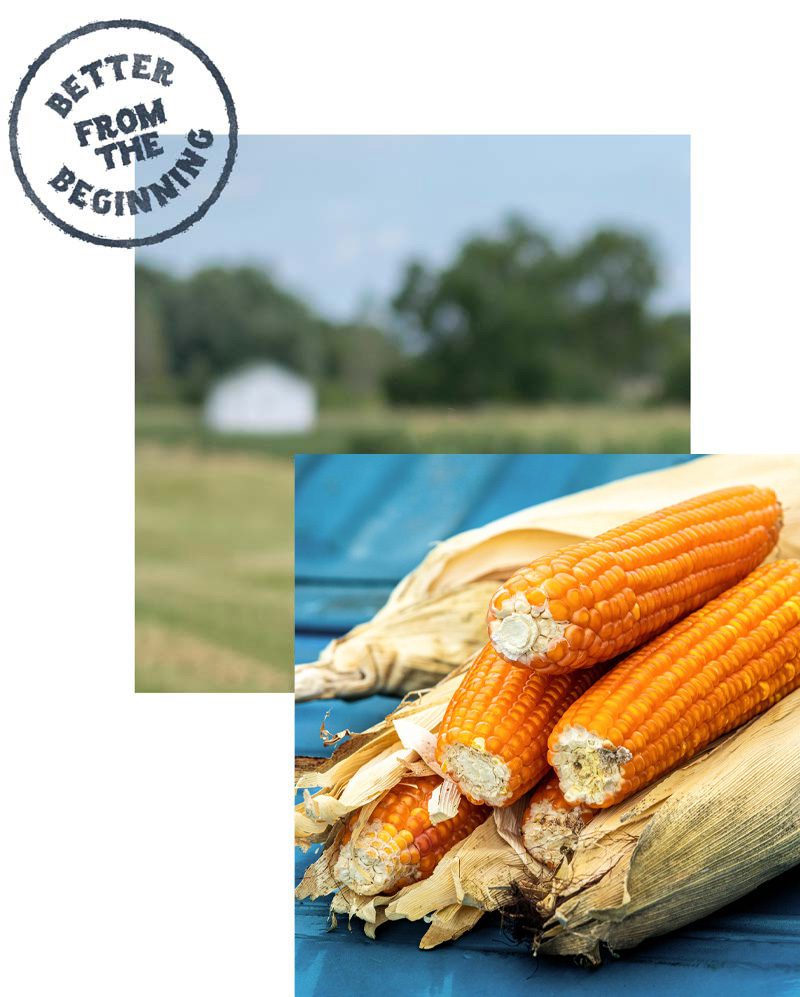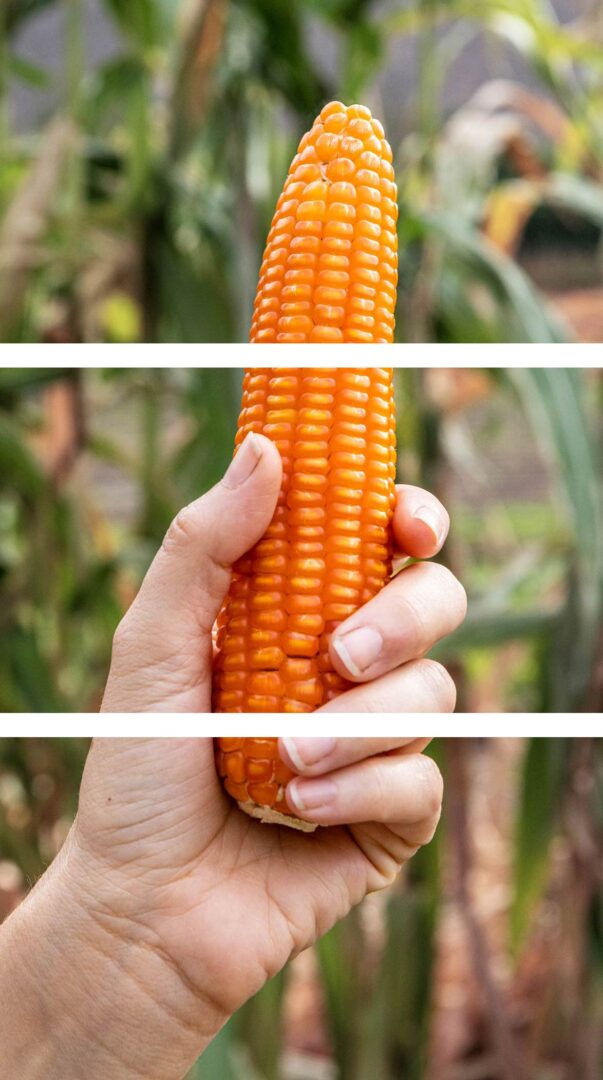
What makes Orange Corn that bright color?
Professor Torbert’s corn gets its vivid orange hue from being naturally selected for significantly increased levels of antioxidant pigments called carotenoids. Carotenoids are micronutrients found throughout nature that give many vegetables and fruits their yellow, orange, or red color. Examples of carotenoid-rich foods include carrots, tomatoes, sweet potatoes, squash, melons and now — Orange Corn.
Is Orange Corn healthier
than regular corn?
Orange Corn is distinctly delicious, but it also packs a greater nutritional punch than white or yellow corn. The carotenoids in Orange Corn are potent antioxidants that can provide numerous benefits, from helping to maintain healthy eye function to boosting vitamin A levels. A large body of scientific research has indicated a diet rich in carotenoids can significantly reduce one’s risk of developing Age-Related Macular Degeneration (AMD), the leading cause of vision loss in the United States. Since the human body can’t produce carotenoids, we must get them from food.
Is Orange Corn
non-GMO?
In contrast to the vast majority of conventionally-produced yellow corn,, Professor Torbert’s Orange Corn is 100% non-GMO, created at the intersection of old-fashioned agriculture and modern science. While Professor Torbert is a geneticist by training, he used his expertise not to modify, but rather, to understand how the genes that already exist in corn affect the production of antioxidant carotenoids in the kernel. He then used that knowledge to hand select new varieties that produce higher levels of carotenoids to fulfill his mission of bringing more nutritious foods to people around the world.
What about vitamin A?
Professor Torbert originally developed Orange Corn as part of an effort to help alleviate vitamin A deficiencies in Sub-Saharan Africa. The varieties of Orange Corn grown in Africa have higher levels of carotenoids that can be converted into vitamin A by the human body (called carotenes or provitamin A carotenoids). Since vitamin A deficiencies are rare in the U.S., the Orange Corn variety we offer here has been selected for increased levels of other carotenoids critical for maintaining healthy eye function as we age, a much greater concern for most Americans.



